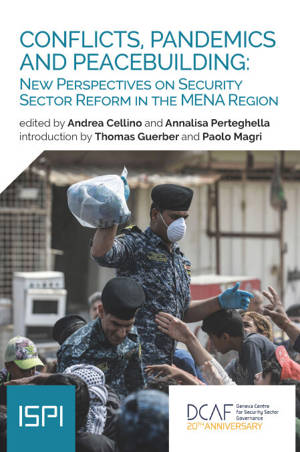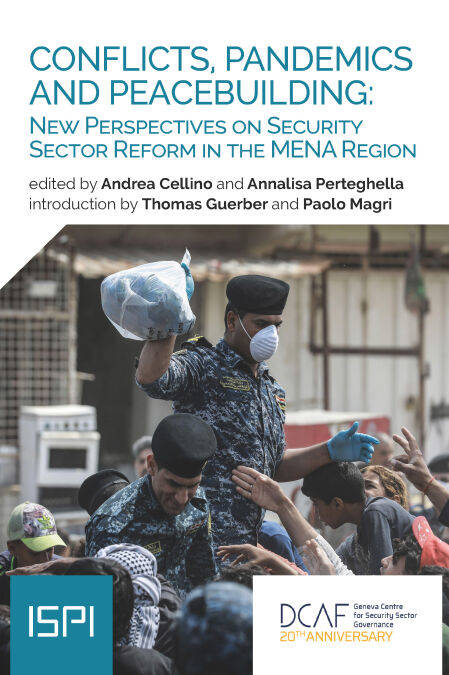
- Afhalen na 1 uur in een winkel met voorraad
- Gratis thuislevering in België vanaf € 30
- Ruim aanbod met 7 miljoen producten
- Afhalen na 1 uur in een winkel met voorraad
- Gratis thuislevering in België vanaf € 30
- Ruim aanbod met 7 miljoen producten
Zoeken
Conflicts, Pandemics and Peacebuilding E-BOOK
New Perspectives on Security Sector Reform in the MENA Region
Andrea Cellino, Annalisa Perteghella
E-book | Engels
€ 6,99
+ 6 punten
Omschrijving
The Covid-19 pandemic is not only a health challenge. In the MENA region, against the backdrop of protracted conflicts, instability, and an overall deterioration in socio-economic conditions, the coronavirus crisis adds another layer of vulnerability and has already had long-lasting repercussions on human security across the region. Moreover, as hybrid actors take on an important role as security providers amid the pandemic in a context of limited or absent oversight, risks associated to a lack of accountability, ethno-religious discrimination, human rights abuses, and gender-based violence grow. While classical approaches to security provision tend to portray non-state actors and the State as inherently at odds, the complexity of a rapidly evolving security landscape throughout the region should trigger a revision of the very concept of effective governance. Against this backdrop, how should Security Sector Reform (SSR) strategies and programmes adapt? What lessons can be drawn from selected case studies such as Iraq, Libya, and Yemen?
Specificaties
Betrokkenen
- Auteur(s):
- Uitgeverij:
Inhoud
- Aantal bladzijden:
- 119
- Taal:
- Engels
Eigenschappen
- Productcode (EAN):
- 9788855263931
- Verschijningsdatum:
- 17/01/2021
- Uitvoering:
- E-book
- Beveiligd met:
- Digital watermarking
- Formaat:
- ePub

Alleen bij Standaard Boekhandel
+ 6 punten op je klantenkaart van Standaard Boekhandel
Beoordelingen
We publiceren alleen reviews die voldoen aan de voorwaarden voor reviews. Bekijk onze voorwaarden voor reviews.







